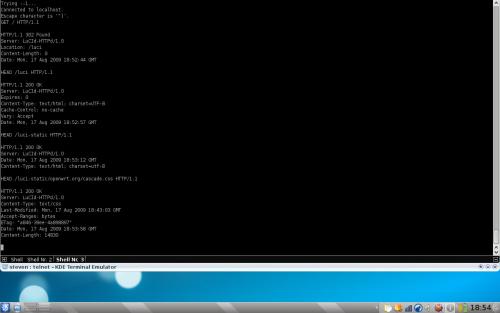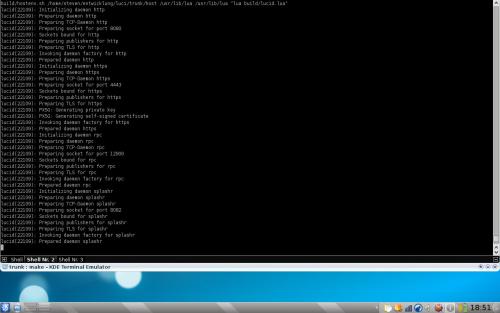As promised I have been working hard on the proposal. Thanks to community help I have already almost completed all deliverables and in fact some patches got merged in netifd [10-13] and OpenWrt [15] already and development branch of libre-mesh is already taking advantage of them [14] 🙂
Working on this project gave me more conviction that community collaboration is fundamental, community helped me to understand the problem and what to modify to fix it, moreover someone went beyond that submitting patches too [16-17] !
Here it goes a small resume of how I did it:
– Talk multiple time with OpenWRT [0] folks via retroshare openwrt lobby, they gave me some indication on what I had to do
– Get netifd code [18]
– Create a vlandev netifd device
– Implement routines to add and remove 802.1ad/802.1q vlan in Linux via netlink
– Talk with OpenWRT folks for quality check and patch merging
– Code cleaning and testing
– Patches get merged in netifd and OpenWRT
Now who need to use 802.1ad is not unfortunately constrained to private software anymore, because it is now supported in OpenWRT [0] 😀
More updates [6] soon, and don’t forget the best is yet to come!
[10] http://git.openwrt.org/?p=project/netifd.git;a=commit;h=247f42d1907dbb16033dcb9a28548c4591af9d67
[11] http://git.openwrt.org/?p=project/netifd.git;a=commit;h=f8981d9933683e1a8314fa86ac610f8e9a22661c
[12] http://git.openwrt.org/?p=project/netifd.git;a=commit;h=59217785704fca27d2c7a19e279d27c384a452cd
[13] http://git.openwrt.org/?p=project/netifd.git;a=commit;h=6e70adc5eca0dc1cc52a5838e86d937efdf8a38c
[16] http://git.openwrt.org/?p=project/netifd.git;a=commit;h=24388f1ff259ba4eb69a6ce45e3c64b98f041c6b



